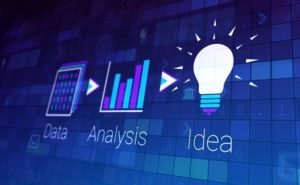Data analysts are those who convert mathematical figures and variables into simpler terms that could be understood by the people (usually management) and could thus supplement in a decision-making process. Data analysis as a field has wide applications across industries like marketing, finance, operations, and so on.
Given the widespread demand in the job market, a qualification through a data analyst course is always helpful in creating job opportunities for the people looking to build a career in this domain. However, there is various other qualification that is a pre-requisite to becoming a data analyst.
Completion of Secondary and Higher Secondary (or any other equivalent examination)
Aspirants need to complete their class 10th and 12th board exams with a minimum of 50 per cent aggregate. Students from a science background who have studied mathematics, statistics, economics, computer science, or other such subjects that require high analytical abilities are preferred, however, aspirants from other streams are considered as well.
Bachelor’s Degree
Every aspirant must have a Bachelor’s degree. Various degree holders can get a job as a data analyst. A list is given below
- B.Math (Bachelor of Mathematics)
- B.Com (Bachelor of Commerce)
- B.Stat (Bachelor of Statistics)
- B.Tech (Bachelor of Technology) Computer Science
- B.Tech (Bachelor of Technology) Data Science and Engineering
- B.Tech (Bachelor of Technology) Big Data Analytics
- B.E (Bachelor of Engineering) Computer Science
- B.E (Bachelor of Engineering) Data Science and Engineering
- B.E (Bachelor of Engineering) Big Data Analytics
These Bachelor’s degrees would fetch jobs mostly at an entry-level. Most of the degrees above are in the field of maths, statistics, and so on. A qualified data analyst needs to have that knack of crunching numbers and playing with huge data sets, that is why people who have done their graduation are considered qualified. However, this list is by no means is exhaustive.
Master’s Degree
Post a Bachelor’s degree people can get data analyst jobs. However, to get into roles that are very high-end and require greater professional commitment from data analyst companies usually prefer people who have a Master’s Degree. A list of the most common qualification degrees for a data analyst job is given below
- M.Math (Masters of Mathematics)
- M.Com (Masters of Commerce)
- M.Stat (Masters of Statistics)
- M.Tech (Masters of Technology) Computer Science
- M.Tech (Masters of Technology) Data Science and Engineering
- M.Tech (Masters of Technology) Big Data Analytics
- M.E (Masters of Engineering) Computer Science
- M.E (Masters of Engineering) Data Science and Engineering
- M.E (Masters of Engineering) Big Data Analytics
This list by no means is exhaustive and there are other Master’s degrees people might choose to pursue to get into data analytics. People usually prefer to do a job after the completion of their Bachelor’s and before Masters, as a work experience before Maters is often considered as an important qualification for the aspirant who is applying for the job role of a data analyst after Masters.
Data Analyst Course
An aspiring data analyst can also choose to do online courses on various internet sites like Udemy, Coursera, etc. Although it is not a mandatory requirement like the above three, it is a qualification that helps aspirants in many ways. People can learn a variety of software from this data analytics courses like
- R Programming
- Python
- Apache Spark
- OpenRefine
- QlikView
- Microsoft Excel
- SAS
This is a qualification sometimes considered by a company for people who are new to the field. Even seasoned data analysts applying for new jobs do certification courses in these fields as most of them are adept with one computer language only and would their job titles sometimes require them to have a working knowledge of others as well.
Also Read: How to Become a Successful Data Analyst




 It can all be done by smart & intelligent applications. The digital platform can be easily managed by wealth managers from a remote location too. All they need is a system and the client’s requirements. This also helps in adopting more efficiently with the new work from home culture.
It can all be done by smart & intelligent applications. The digital platform can be easily managed by wealth managers from a remote location too. All they need is a system and the client’s requirements. This also helps in adopting more efficiently with the new work from home culture.